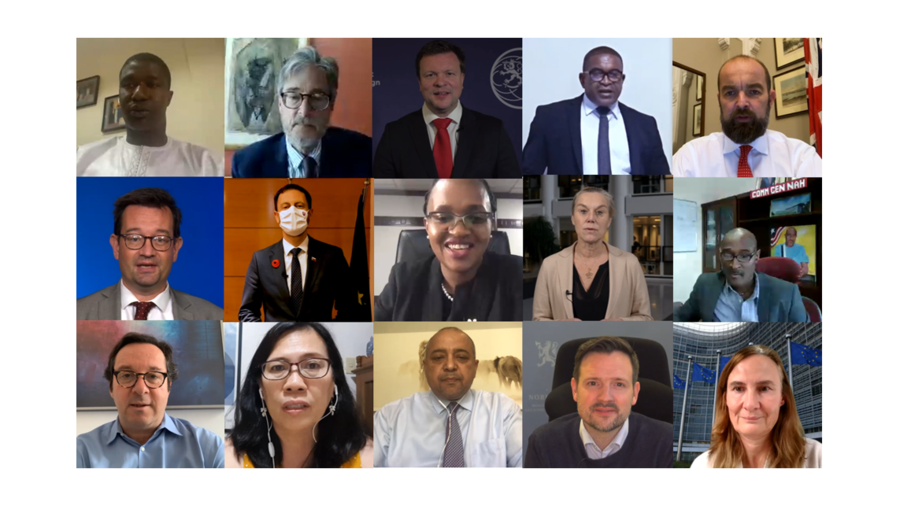
Madagascar
Recent reform steps
Madagascar has taken major steps to foster domestic revenue mobilisation, including through:
- Modernising the tax administration by digitalising tax operations and services provided to taxpayers;
- Improving and securing tax revenues through the use of electronic declaration and telepayment platforms. Recently, the use of the "e-balance sheet" tele-transmission module for financial statements has also made it possible to effectively combat tax fraud;
- Using digital tools to strengthen the resilience of tax revenues and recover 97.48% of annual forecasts despite the health and economic crisis;
- Gradually expanding to the informal economy through the use of mobile phone payment platforms for synthetic taxes.
Progress achieved in 2019
Reflecting its commitments through the Global Forum on Transparency and Exchange of Information of Tax Purposes, Madagascar undertook a variety of legislative and administrative measures in 2019, including:
- Modifying the threshold for liability to income tax (IR), IS and VAT;
- Limiting the exemptions to the IR;
- Modifying the minimum collection at the IR for land carriers of people and goods;
- Enforcing the obligation to report transactions in the context of the return delivered;
- Modifying the base and tariff of the tax on tobacco;
- Modifying provisions relating to the refund of VAT credit;
- Collecting an IR/IS deposit on import operations during customs declarations.
- Improving taxpayer management;
- Optimising tax audit and control procedures;
- Implementing the “HETRA e-Payment” platform, which functions to offer the secure online payment of taxes and duties;
- Presenting a new tele-declaration platform called “e-HETRA Declaration”;
- Fighting against tax fraud through the implementation of an online and real-time monitoring tool for tax audit actions called "Qualitative Monitoring of Tax Audits" (SQVF).
Outlook: DRM priorities
Madagascar's efforts to modernise its public finances are guided by a ten-year strategic plan - the National Strategy for the Modernisation of Public Financial Management (SNMGFP) - developed by the Ministry of Finance in 2016. The SNMGFP sets the overall objective of "Establishing an effective, efficient and transparent public financial management system to consolidate its fundamental functions and contribute to the credibility of the National Development Plan and the General Policy of the State" based on ten specific objectives, two of which directly affect domestic revenue mobilisation, as noted below:
- Specific Objective 1: Modernise the basic foundation of public financial management and bring it in line with new requirements of public financial management
- Specific Objective 3: Optimise the revenues of the State and local authorities
Ensuring policy coherence for development
Madagascar demonstrates police coherence for development by:
- Actively combatting international tax evasion, money laundering and the financing of terrorism through its participation in the Global Forum on Transparency and Exchange of Information for Tax Purposes and enhanced legal and institutional mechanisms;
- Committing to strengthen international tax cooperation by taking the necessary steps for the effective implementation of international standards of transparency and exchange of information and planning a preliminary assessment of their legal and practical frameworks;
- Providing tax incentives for investment through the Malagasy General Tax Code;
- Addressing double taxation through two existing tax treaties with France and Mauritius, and two upcoming tax treaties with Canada and Morocco;
- Policies to address the taxation of official development assistance (ODA), such as exemptions from interest on income tax and tax on income from movable capital, as well as subjecting products in the form of donation and aid to VAT;
Supporting green growth by offering tax exemptions for companies investing in renewable energy.
